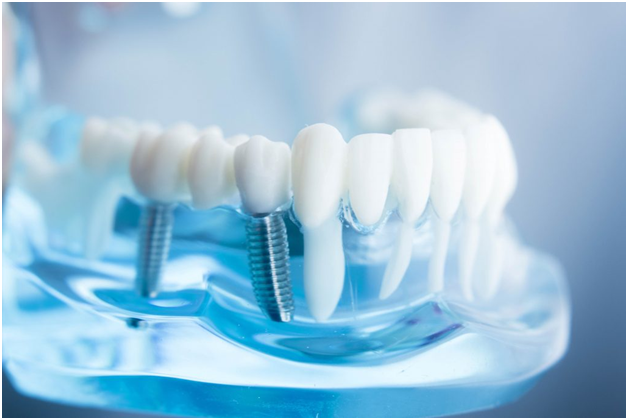Written by Dr. Dominique Laatz MSc. MSc. (Oral Surgeon)
Background Facts
Since their inception by the Swedish physician Dr. per Ingvar Bran mark in the mid-1960s, dental implants quickly became an incredible success story around the globe. They constituted nothing less than a game-changing possibility to replace missing teeth with a fixed solution, without the need to grind down neighboring teeth.
Who benefits most?
While all age groups can benefit from dental implants in the case of tooth loss or non-existing teeth, probably no group benefits as much as the elderly population.
A very common scenario for many seniors is the partially or completely edentulous jaw. The more teeth are missing; the worse will be the conventional restorative options for the patient. This is because; there might not be enough good teeth left, to support fixed conventional solutions, such as dental bridges. Removable partial or complete dentures often can’t provide stable and painless chewing due to movement and the gum and dental irritation that comes with it. Needless to say, dentures of any sorts can be detrimental to a person’s self-confidence. Nobody likes to be reminded of the fact that he or she lost many teeth, whenever the denture will have to be removed for proper cleaning. Furthermore, the unnatural distribution of load to the jaw and aging processes will also result in bony atrophy, which again will worsen the fit of the denture, with the need of repeated adjustments by the dentist.
And that’s where tooth implants can make the greatest difference, simply because they don’t need any tooth support or anchorage. They are independent units and directly connected to the local bone, which makes them very similar to normal teeth. In fact, implants are even more stable to a load of chewing than even the healthiest of teeth, due to the dense and direct integration within the local bone. Their stability allows them to support fixed crowns and bridges or even – in some cases – dentures. Studies also showed clear health benefits of implants when compared to removable partial or full dentures.
The main finding of these studies was the difference in chewing efficiency. In a comparative setting, patients with dental implants were significantly more effective in shredding food, when compared to patients with dentures.
Summary
While most answers to dentistry-related questions, will partially depend on the treatment philosophy of the dentist asked, the consent among dental practitioners regarding dental implants vs. dentures, is overwhelmingly in favor of implants. Besides all the scientific evidence for superior longevity and functionality, it is the positive feedback of a big number of implant-treated patients, which tilts the balance for most dentists. However, very few patients should not get dental implants, because they have a condition that might temporarily or permanently forbid an implant procedure due to safety issues. Sadly, most of these so-called contraindications, affect the part of the population in the biggest need of dental implants – the elderly and senior citizens. But fortunately, contraindications are very rare, such as some metabolic bone diseases and heart conditions.
For further details and assessment of your specific oral situation, please consult your dental practitioner of trust.
